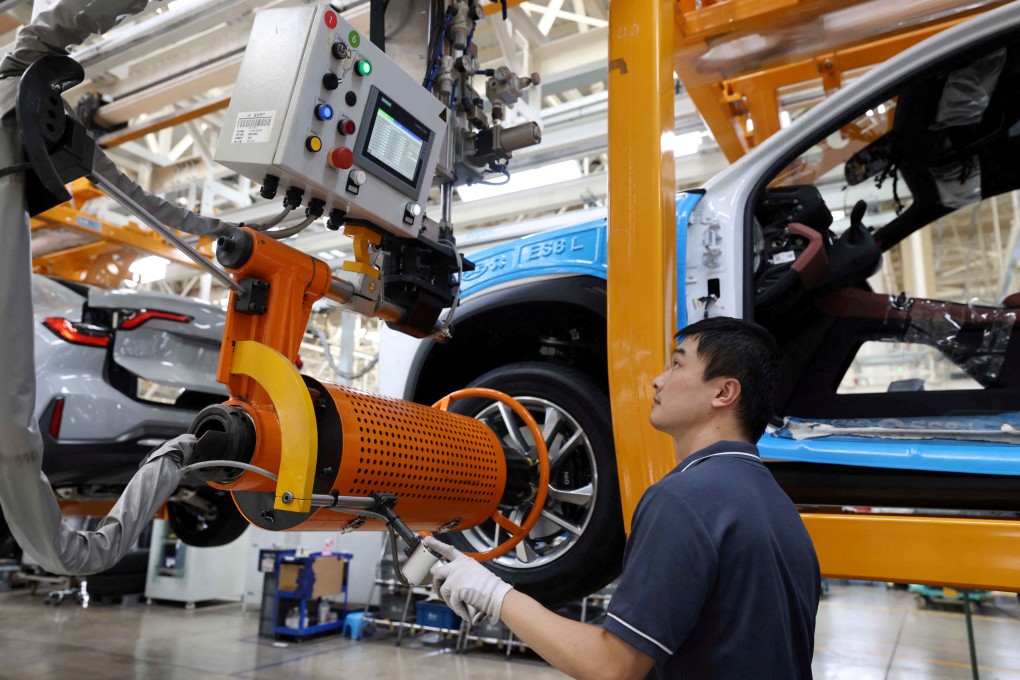Advertisement
China’s Nio slashes waiting time for its electric cars as production returns to normal after Covid-19 disruptions
- The EV start-up has cut delivery times, in a sign that it has overcome supply chain problems and is back on track to compete in the world’s largest automotive market
- Production at Nio’s factory in Hefei has been disrupted by the pandemic five times this year, most recently in October when it ran short of key components for the ET5
Reading Time:2 minutes
Why you can trust SCMP

Daniel Renin Shanghai
Chinese electric car start-up Nio has slashed the waiting time for its cars to be delivered, the latest sign that it has overcome supply chain problems and is back on track to pursue high growth in the world’s largest automotive market.
According to its official app, buyers of Nio’s ET5 saloon will receive their cars in 13 to 15 weeks after placing their orders. Back in September, they faced a wait of up to 23 weeks.
The waiting period for the ET7 model had also been drastically cut, from five weeks to two weeks, as of Friday.
Advertisement
The shortened waiting period comes after Shanghai-based Nio announced earlier this week that it had resolved a supply-chain issue, enabling production to return to normal.
“Nio and its Chinese counterparts cannot maintain their leading positions in the premium EV [electric vehicle] segment unless they successfully solve the production problem,” said Eric Han, a senior manager at Suolei, a business advisory firm in Shanghai. “Competition will become fiercer because new models developed by other technology firms will hit the market next year.”
Nio, along with Guangzhou-based Xpeng and Beijing-headquartered Li Auto, develop and assemble battery-powered vehicles that target China’s middle-class consumers.
Advertisement
Select Voice
Select Speed
1.00x
